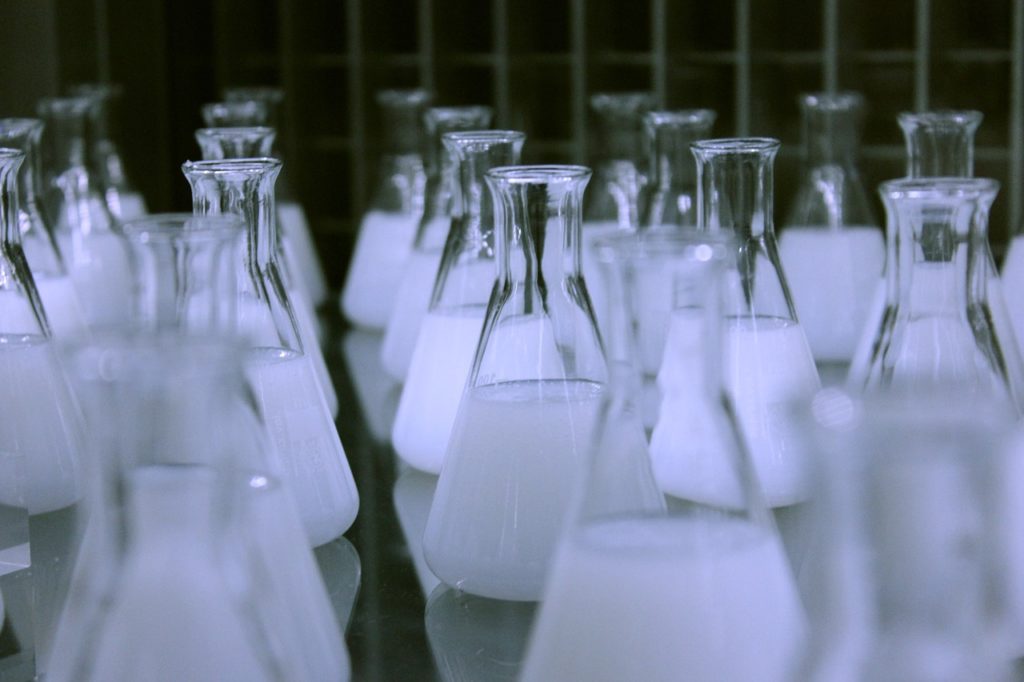Chemical and Pharmaceutical Science examines matter’s basic composition and properties – atoms, molecules– how they change through chemical reactions. These scientists also look at ways to apply chemical and pharmaceutical reactions to improve industry and medicine.
Education
Chemistry and Pharmaceutical Science are available to study as independent, dedicated degrees. You can also study degrees that combine both disciplines with a lesser degree of specialisation.
Chemistry courses introduce students to the core strands of organic/inorganic and physical/analytical chemistry.
Organic chemistry is the study of the structure, properties, and reactions of organic compounds as well as organic materials. That is, living “things”, all of which have carbon. Analytical chemistry is the study of the chemical composition of natural and artificial materials. Physical Chemistry focuses on the physical relationships and reactions between molecules and compounds.
Students will also gain valuable experience of laboratory practice and computer/mathematical applications in chemistry. Applied courses examine how chemistry is used in areas such as pharmaceutical, environmental and material science.
Pharmaceutical Science is a combination of biological and chemical disciplines. Graduates often work to develop new drugs and therapies. Besides the scientific and laboratory-based modules, students also tackle industry-related modules. These include Manufacturing Technology, Regulation & Compliance, Quality Management and Pollution Control.
Forensic science involves the retrieval and analysis of scientific evidence for legal purposes. This might be a crime scene, a drug test on an athlete, or instances of environmental pollution. Some chemical and pharmaceutical degrees include a module on this fascinating area. Galway-Mayo IT has a dedicated course in this discipline.
The Work
The career options for chemistry and pharmaceutical science graduates are many and varied. They include opportunities in the pharmaceutical, biotechnology, agriculture, horticulture, environmental protection, manufacturing, engineering, healthcare, food, cosmetics and textiles sectors.
Graduates can also work in sales and business positions and in public sector laboratories, research institutes and second- and third-level teaching institutions.
People generally start their chemist or lab scientist career as laboratory technicians or operatives. The tasks might include setting up equipment and preparing materials and assisting with experiments and processes. However once you learn the (nylon) ropes you will be involved in the full range of tasks and responsibilities involved with being a professional scientist.
Analytical chemists examine the contents of foodstuffs, chemicals, pharmaceuticals and water to find out what chemicals they contain. In manufacturing plants, they ensure that standards of safety and quality are adhered to. Industrial chemists create, develop and test chemical processes and products. They are experts in the chemical make-up and behaviour of substances and they use this knowledge to create useful new products – coffee whitener, for example, is a result of their work.
Biochemists are concerned with chemical processes in living things. The research the effect of various drugs, foods, hormones on humans, animals and plants, work to determine the cause of disease and develop and test new drugs.
People with an inquisitive and analytical mind usually suit chemistry. An affinity with technology and of course, an interest in maths and science would also be helpful traits.
Did you know?
Natural gas has no odour. The smell is added artificially so that leaks can be detected.












Comments